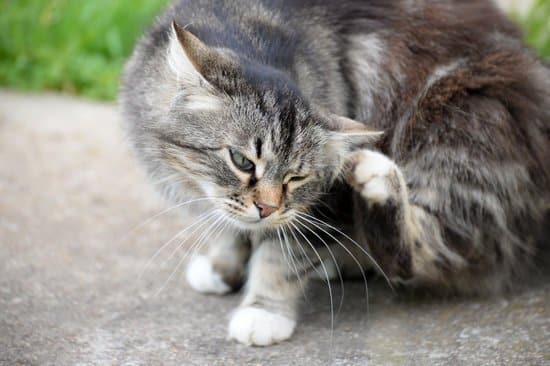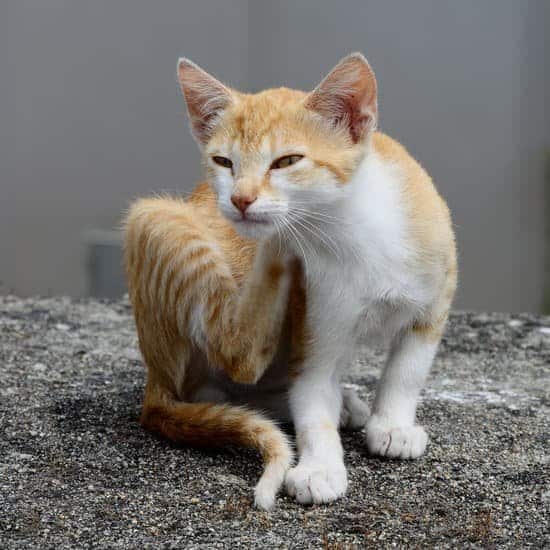Fleas and ticks are two of the biggest nuisances for our feline friends. While there are preventative medications available to stop these pests, choosing the right flea and tick prevention for cats is extremely important. You may have never heard of the word permethrin but it’s a common ingredient in prevention medications. Permethrin poisoning is one of the most common poisonings in cats which can be life-threatening and is poisoning we see all too often in our hospitals. If you have a cat, to keep them safe it’s best to know the signs and symptoms of permethrin poisoning and what to do if you feline friend comes in contact with permethrin.
What is permethrin poisoning?
Permethrin and pyrethrin are common active ingredients in flea and tick prevention medications, which are highly toxic to our cats, and in some cases can be fatal. But why are these ingredients dangerous for cats?
Pyrethrin is a naturally occurring compound found in dried chrysanthemum flowers. Permethrin is the synthetic and more potent form of pyrethrin, part of the pyrethroid chemical family. Pyrethroids and pyrethrins are widely used to kill insects as an insecticide as well as in flea and tick prevention products for pets and livestock.
While permethrin and pyrethrin are safe for many animals, including dogs, it is highly poisonous to cats. The reason cats are sensitive to these compounds is that they are unable to break down these toxins as they lack the liver enzyme to do so. Instead, the chemical builds up in their bodies causing serious illness.

How are cats poisoned?
While permethrin poisoning in cats is common, more often than not it occurs by accident. Some of the reasons why cats develop permethrin poisoning is they are:
- Given preventative flea and tick treatments made for dogs
- In close contact or groom a dog who recently was given a flea and tick prevention product
- Given an overdose of cat flea and tick treatment
What are the signs and symptoms of permethrin poisoning?
There are a number of signs and symptoms of permethrin poisoning cats can exhibit. Effects of permethrin poisoning can start presenting within just one hour of being exposed. The more concentrated and higher the dose of the toxin the more severe the symptoms will be. The signs and symptoms to be aware of include:
Panting
- Drooling or vomiting
- Diarrhoea
- Lethargy
- Skin irritation
- Ear flicking/twitching
- Facial twitching
- Twitching or muscle tremors
- Loss of coordination
- Seizures
- Hyperthermia
While less common, there have been cases of cats having difficulty breathing and blindness occurring from tick prevention medication.
If your cat starts to exhibit any of these signs, seek veterinary advice and treatment immediately. Without treatment heat stroke can occur, and the chance of survival is extremely low.
What do you do if your cat is given the wrong flea and tick prevention medication?
If you believe you’ve accidentally applied the wrong prevention treatment or your cat has been exposed to dog flea and tick prevention medication, it is important to remove the toxin as soon as possible.

- Wash the flea and tick product thoroughly off their coat using a mild dish soap and lukewarm water. In this instance pet shampoo won’t work as the medication is too oily.
- Dry their coat as much as possible with a towel.
- Prevent them from licking/grooming their coat
- Visit your vet immediately.
If your cat is already showing signs and symptoms of permethrin poisoning, or you are unable to bathe your cat safely (cats are notoriously hard to bathe), skip these steps and seek veterinary treatment immediately.
How is permethrin poisoning treated by vets?
Unfortunately, there is no antidote to permethrin poisoning. The only treatment is supportive care, but with intensive treatment most cats will recover. Once you arrive at your vet, they will perform tests to determine how severe your cat’s poisoning is and to develop the best treatment plan. Treatment can involve:
- Medication to control seizures and to relax muscles
- Medication to bind the toxin in their blood
- Decontamination by bathing and clipping their coat
- Intravenous fluid therapy to improve hydration, support blood pressure, and dilute and remove the toxin from their blood
- Close monitoring of their temperature as fluctuations in body temperature can be common
- Intensive care nursing
In cases of severe poisoning, a few days in hospital may be required.
How to avoid permethrin poisoning
To avoid your furry companion being accidentally poisoned follow these guidelines when using flea and tick treatments for cats:
Choose the right flea and tick treatments – only use prevention medication designed for cats.
- Read the instructions and ensure the right dosage is given to avoid an overdose.
- If you also have a dog who comes in close contact with your cat, use a cat-safe product on your dog or keep apart until the treatment has dried.
- Keep flea and tick prevention medication stored safely away from pets.
- Always seek your veterinarian’s advice before using a new product on your pets.
- Check all sources – some outdoor insecticides contain these toxins. This is especially important if your cat goes outside.
- Know the signs and symptoms of permethrin poisoning.
If you have any questions or concerns about flea and tick prevention for your cat or would like advice on the best prevention method for your pet, see your local vet to talk through your concerns and options.
If you suspect your pet may be suffering from permethrin poisoning, contact your closest Animal Emergency Service hospital or your local vet immediately.
For more information about what is toxic for pets, visit our Pets and Poisons Guide.

 Panting
Panting Choose the right flea and tick treatments – only use prevention medication designed for cats.
Choose the right flea and tick treatments – only use prevention medication designed for cats.